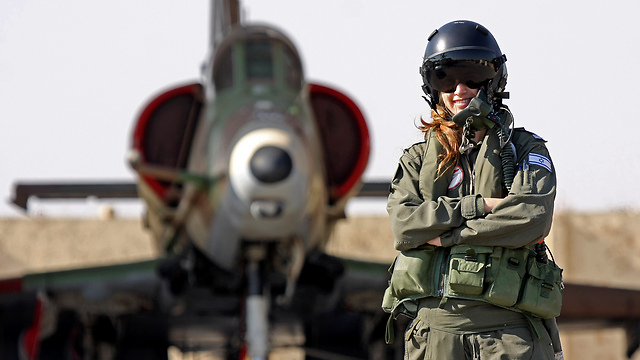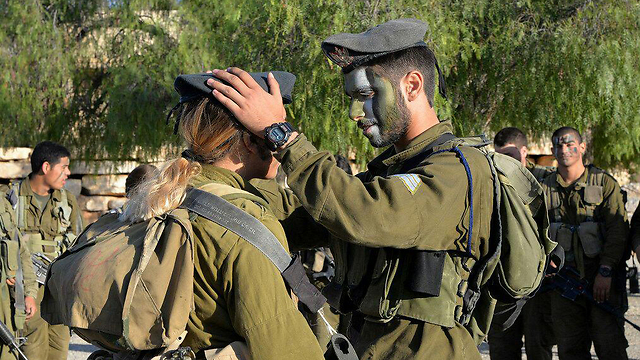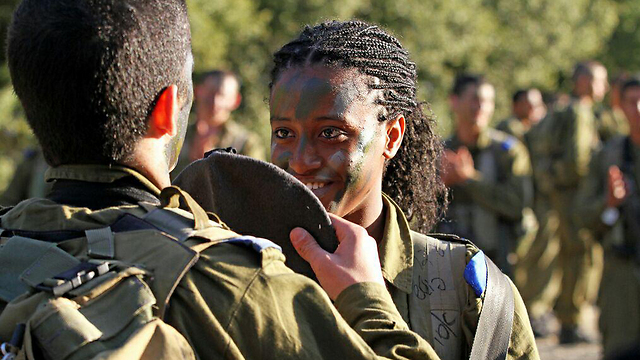
Woman in the IAF
Photo: IDF Spokseperson's Unit
The controversial remarks
recently made by Rabbi Yigal Levinstein from the Bnei David pre-military modern Orthodox academy, in which he disparaged women for drafting into the IDF, has sparked yet again a fierce debate over equality for women in Israel and has prompted a response from the IDF and religious women serving in the military.
In light of the remarks, in which Levinstein wondered aloud, "Who would agree to marry (women in the army)?" and cast aspersions on their femininity, IDF spokesman Brig. Gen. Moti Almoz wrote on his Facebook page on Wednesday night that the comments were out of place.
“Regarding the inappropriate comments...in the last few hours the calls to stop the integration of women into the IDF were publicized. Brothers in arms, you are mistaken. The IDF belongs to everyone, women and men,” he wrote.
“Zionist and religious people who are dear to us fight together with their secular brothers in all fields of the army and with religious female fighters who guard out country, with Haredim, people of different religions and the entire Israeli society,” he continued.
“The aim is one—the protection of the State of Israel, the assurance of peace for its residents and victory in war.”
Almoz also added that the overarching goal of the army was to unite the different strata within its ranks and to create a “united, strong and determined military in order to carry out its missions. We are doing this responsibly and with sensitivity while listening to all strands of Israeli society.”
He concluded by urging people to “leave the IDF outside the disputes.”
The IDF spokesman was not the only one who spoke out against Levinstein’s provocative comments. Indeed, Chen Levine, a 24-year-old religious woman who served in a classified unit in the army insisted that to be religious in the IDF and in a secular environment only strengthened her religious identity.
“It is having to cope in an environment unfamiliar with religion, and the questions that were raised always challenged me and forced me to find answers,” said Chen.
Another woman from the Tzahali pre-military modern Orthodox academy, which was established in 2006 for religious girls, who wanted to serve in the IDF, also refused to let Levinstein’s comments go unchallenged.
“The things Rabbi Levinstein said show me even more that we need to be heard, that our motives need to be known,” said Esti Pinto, 18, who serves in an intelligence unit. “The laughing of his listeners come from a lack of understanding,” she added.
Danna Salski, 19, who also serves in an intelligence unit in the IDF, stated that precisely because of the comments made by Levinstein, she is more interested in hearing what he had to say.
“But it also sharpened, in my mind, the significance of the conscription revolution among religious women, and I understand that I have a duty to put the matter in a positive light,” Salski said.
Nevertheless, the rabbi’s comments were not all met with anger, apprehension or dissent.
More than 200 IDF officers, graduates of Bnei David, signed a petition backing up their rabbi, arguing that integrating women in combat units could harm the army "in a significant and painful manner," and the fact that the rabbi's words "sound harsh" is only "due to the seriousness of the matter."



















